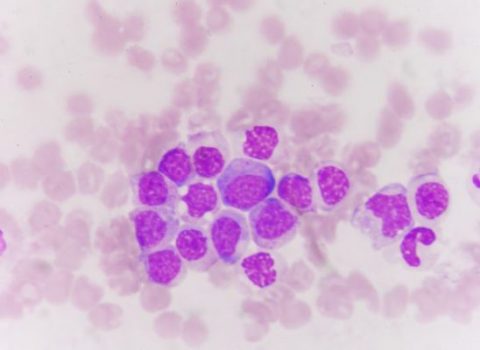The progression from gastritis to gastric cancer and prevention measures
 Stomach cancer, also called gastric cancer, is cancer that starts anywhere inside the stomach or the stomach wall. It is one of the leading causes of cancer-related deaths in the world and over 70% of new cases of stomach cancer occur in developing countries.
Stomach cancer, also called gastric cancer, is cancer that starts anywhere inside the stomach or the stomach wall. It is one of the leading causes of cancer-related deaths in the world and over 70% of new cases of stomach cancer occur in developing countries.
Stomach cancer prevention is considered an important step to avoid suffering from this disease. but before taking actions, we should first find out whether stomach cancer is prevented.
The answer to the question is “It depends”. Stomach cancer is histologically classified into two types, namely diffuse-type gastric cancer and intestinal type gastric cancer.
Diffuse-type gastric cancer is associated with a genetic mutation, which means that it is unpreventable and people can do nothing to prevent or change its incidence. Suspected patients who have a family history of gastric cancer should receive gene mutation screening and total gastrectomy is operated when necessary.
Intestinal-type gastric cancer is a majority, accounting for nearly 90 percent among all gastric cancer. The intestinal gastric cancer is less malignant with relatively slow growth and spread. It is often related to environmental factors such as Helicobacter pylori infection, diet, and lifestyle, which makes it more practical for us to prevent its incidence.
Starting with Helicobacter pylori infection, the progression of gastritis to gastric cancer will experience four hallmarks, non-atrophic gastritis, atrophic gastritis, intestinal epithelial gastritis and heteroplasia gastritis. Interventions should be done to prevent the progression of the disease.
Non-atrophic gastritis
Though as the first hallmark of gastric cancer, single non-atrophic gastritis won’t increase the risk of developing gastric cancer, so you don’t need to worry much when getting diagnosed.
If you get a gastric ulcer, have a family history of gastric cancer or live in high-risk areas of gastric cancer, you are advised to
- receive Helicobacter pylori eradication therapy;
- eat more fresh fruits and vegetables,
- avoid smoked and high-salt foods;
- control weight;
- quit smoke.
Atrophic gastritis
Atrophic gastritis is the first precancerous condition for gastric cancer that you should really concern. When diagnosed with atrophic gastritis, people will receive Helicobacter pylori eradication therapy and make regular physical check.
Intestinal metaplasia
Intestinal metaplasia is divided into complete and incomplete ones. Incomplete intestinal metaplasia is closer to gastric cancer. Therefore, when incomplete morphogenesis occurs, it is important to make a close follow up.
Dysplasia
Gastric epithelial dysplasia is divided into low-grade one and high-grade one. In high-grade dysplasia, the abnormal cells change and grow quickly and have a high risk of becoming cancer, about 60 to 80%. Patients with low-grade dysplasia should be closely monitored and for patients with high-grade dysplasia, prophylactic gastroscopic treatment should be given.
If you don’t know how close you are to gastric cancer, here are some preventative steps that can help reduce the risk of developing into gastric cancer.
Genetic testing
If two or more families have stomach cancer and one or more of them are diagnosed with diffuse-type gastric cancer, or one family has diagnosed diffuse gastric cancer before the age of 40, you are recommended to perform CDH1 gene detection. If the presence of a mutation is confirmed, gastric resection can be performed to prevent diffuse gastric cancer.
Helicobacter pylori eradication therapy
If your first-degree relatives, such as parents, children, and siblings, have stomach cancer or you live in a high-risk area of gastric cancer, you are recommended to have a gastroscopic examination and eradicate Helicobacter pylori treatment in adulthood.
When gastroscopic examination reveals precancerous lesions such as gastric polyps, gastric ulcers, and atrophic gastritis, Helicobacter pylori eradication therapy should be immediately performed.
Gastric cancer screening
People who smoke, love high-salt, smoked food, or live the high-risk group of gastric cancer are advised to get screened for gastric cancer after the age of 40.
A combined examination of Helicobacter pylori and pepsinogen is recommended and a gastroscopy will be performed based on the results of the examination.
Eating healthily
A good eating habit plays an important role in preventing gastric cancer. It is advisable to eat more fresh fruits and vegetables, avoid smoked and high-salt food. Smokers are recommended to quit smoking.


